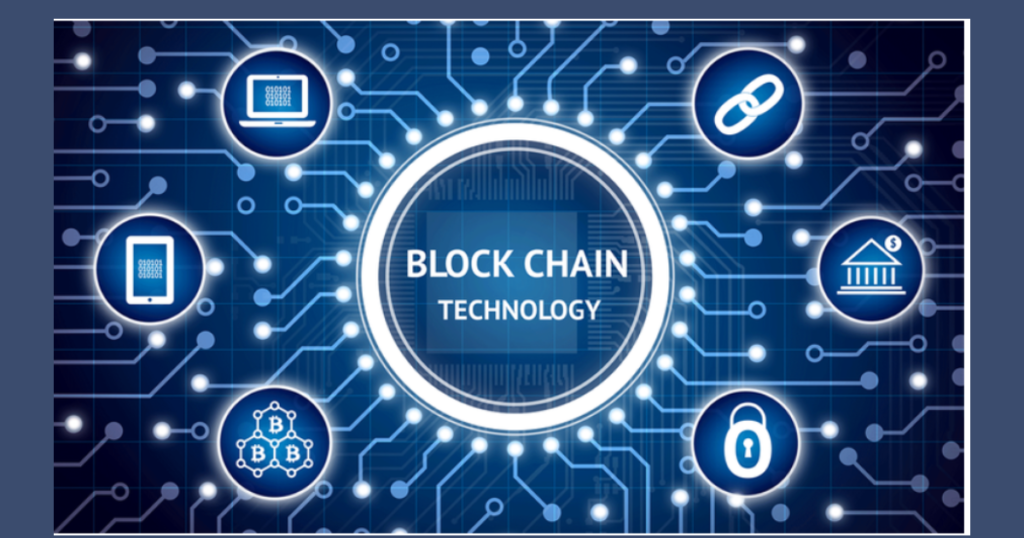Investigate how blockchain innovation is changing healthcare and more with secure, straightforward forms. Find its future potential.

Table of contents
Introduction
Blockchain technology has changed how we think about digital exchanges and information security. This innovation is presently imperative in our computerized world, advertising better approaches to overseeing and securing data.
What is blockchain innovation?
Blockchain is a framework for recording information in a way that produces it troublesome to change or hack.It is like a computerized record that records trades on various computers. This makes the data secure and direct.
History of Blockchain
Blockchain began with the creation of Bitcoin in 2008 by a cloud person or bunch called Satoshi Nakamoto. Over a long time, it has advanced to bolster numerous other cryptocurrencies and employment opportunities.
How does blockchain work?
A blockchain consists of pieces that store information. These pieces are connected by a chain. When an unused exchange happens, it is included in a square. Each piece incorporates a one-of-a kind code called a hash and contains the hash of the past square, making a secure chain. Miners and nodes play a crucial part in this preparation. Diggers unravel complex issues to include unused pieces in the chain. Hubs are computers that validate and record exchanges, guaranteeing the network’s judgment. Blockchain innovation is changing the way we handle digital exchanges. Its key features—transparency, security, and immutability—make it a capable device for different applications. Understanding blockchain can help us appreciate its potential in the future.
Understanding blockchain innovation
Blockchain innovation is a revolutionary system that permits secure, straightforward, and effective record-keeping. It’s like an advanced record that’s spread over numerous computers, making it exceptionally difficult to alter. Each passage, or “piece,” is connected to the past one, making a “chain” of data. This guarantees that once something is recorded, it cannot be effectively changed or eradicated.
Sorts of Blockchains
Open vs. private blockchain
Open Blockchains:
These are open to anyone. Anybody can connect, organize, make exchanges, and see the ledger. This openness guarantees straightforwardness and security. In any case, they can be slower due to their estimate and the need for agreement among numerous members.
Private Blockchains:
These are confined. As it were, certain individuals or organizations could connect with the organization. They are controlled by a single substance or a group. This allows for quicker exchanges and more control over who can access the data. They are regularly utilized by businesses for inside forms.
Consortium Blockchains
Consortium blockchains are a blend of open and private. They are overseen by a group of organizations instead of a single one. This structure is common in industries where different substances get to work together but still need to keep control over their own information. An illustration is the R3 consortium, utilized by banks for secure exchanges.
Illustrations and Utilize Case Bitcoin:
For peer-to-peer money related exchanges without mediators.
Ethereum: Bolsters shrewd contracts, which are self-executing contracts with the terms specifically composed into code.
Private Blockchains: Hyperledger Fabric: Utilized by businesses to streamline supply chain forms.
Consortium Blockchains:
R3 Corda: Utilized by banks for secure, coordinated exchanges.Vitality Web Establishment: It makes a difference: vitality companies oversee the trading of renewable vitality.
Benefits of Blockchain InnovationImproved Security:
Blockchain’s decentralized nature makes it exceptionally secure. Each square is connected to the other some time recently and after, making a chain that’s troublesome to change. This makes it hard for programmers to alter the information.
Progressed Straightforwardness and Traceability:
Each exchange is recorded on an open ledger. This implies anybody can follow the history of an exchange, guaranteeing straightforwardness. In supply chains, for example, this makes a difference in tracking the beginning and travel of items.
Expanded Effectiveness and Speed:
Blockchain disposes of the need for middlemen. Exchanges are coordinated and confirmed by the organization, making forms quicker and more effective. For illustration, cross-border installments using blockchain can be completed in minutes rather than days.
Cost Reduction:
By eliminating the need for intermediaries, blockchain diminishes exchange costs. It too cuts down on printed material and regulatory errands, sparing businesses time and cash.
Challenges and Confinements Adaptability Issues:
As more individuals utilize blockchain, the arrangement can become slower. Open blockchains like Bitcoin can handle a restricted number of exchanges per second. This makes it difficult to scale up for mass use.
Vitality Utilization Concerns:
Blockchain systems, particularly open ones like Bitcoin, expend a part of their vitality. Typically, since they require some computational control to approve exchanges, this high vitality utilization raises natural concerns.
Regulatory and Legitimate Challenges:
Blockchain works across borders, making it difficult to control. Distinctive nations have diverse laws, making lawful challenges. On occasion, the use of cryptocurrencies is prohibited in a few places but acknowledged in others.
Technological Complexities:
Actualizing blockchain innovation is complex. It requires critical, specialized abilities and assets. Not all businesses have the capability to create and maintain a blockchain. Blockchain innovation is changing how we handle information and exchanges. Its types—public, private, and consortium—each have special benefits and use cases. The innovation offers upgraded security, straightforwardness, proficiency, and fetched reserve funds. In any case, it also faces challenges like versatility, vitality utilization, administrative issues, and mechanical complexities. As we proceed to enhance, blockchain will likely become a fundamental component of different businesses, driving more secure and effective operations. Blockchain innovation is a progressive framework that is changing numerous businesses. Here, we’ll investigate its applications, future, and a few regularly asked questions.
Blockchain ApplicationsCryptocurrency:
The most well-known use of blockchain is in computerized cash like Bitcoin and Ethereum. These monetary forms work on decentralized systems, making them secure and straightforward.
Supply Chain Management:
Blockchain can track items from creation to conveyance. It is beyond any doubt that each step is recorded, anticipating extortion and botches. Healthcare:In the restorative field, blockchain can keep quiet records secure and private. It also makes a difference in sharing information rapidly between specialists and healing centers. Voting Systems:Utilizing blockchain for voting can make decisions more secure and straightforward. It guarantees that each vote is checked accurately and can’t be changed.
Financial Services:
Banks and budgetary authorities utilize blockchain to speed up exchanges and decrease costs. It also makes a difference in avoiding extortion.
Genuine Estate:
Blockchain can rearrange the buying and offering of property. It guarantees all exchanges are straightforward and recorded, decreasing the chances of extortion.
The Future of Blockchain Technology Potential Improvements and Advancements:
Blockchain will likely keep developing. Modern employment will develop in several areas. For example, it may offer assistance in regions like renewable vitality and advanced character.
Predictions for Blockchain’s Affect on Different Businesses:
Numerous specialists accept that blockchain will alter how businesses work. It’ll make forms more proficient and secure. Businesses like funds, healthcare, and coordination will see major changes.
FAQ
What is a blockchain?
A blockchain is a list of records, called squares, connected together. Each piece features a record of information and an interesting code. These pieces are put away on numerous computers, making it difficult to alter the information.
How secure is blockchain innovation?
The blockchain is exceptionally secure. It employs advanced strategies to ensure information. Once information is recorded, it is nearly inconceivable to alter it.
Can blockchain be hacked?
Hacking a blockchain is exceptionally troublesome. Since the information is put away on numerous computers, changing the information on one does not influence the others. This makes it exceptionally secure.
What are smart contracts?
Savvy contracts are understandings that run on blockchain innovation. They naturally execute activities when conditions are met, without needing a broker.
How does blockchain influence protection?
Blockchain offers strong protection. Indeed, in spite of the fact that the information is open, it is scrambled. As it were, those with the right key can peruse the information.
What businesses can benefit from blockchain?
Numerous businesses can utilize blockchain. A few cases incorporate funds, healthcare, genuine domain, and supply chain administration. It makes a difference to make forms quicker, cheaper, and more secure.
Conclusion
Blockchain technology is changing the world. It has numerous employment opportunities, from computerized cash to secure voting frameworks. The long haul indeed holds more energizing possibilities. Blockchain will continue to develop and affect various industries. Remaining educated about blockchain advancements is vital. This innovation has the potential to change how we live and work. Keep learning and investigating the world of blockchain.




